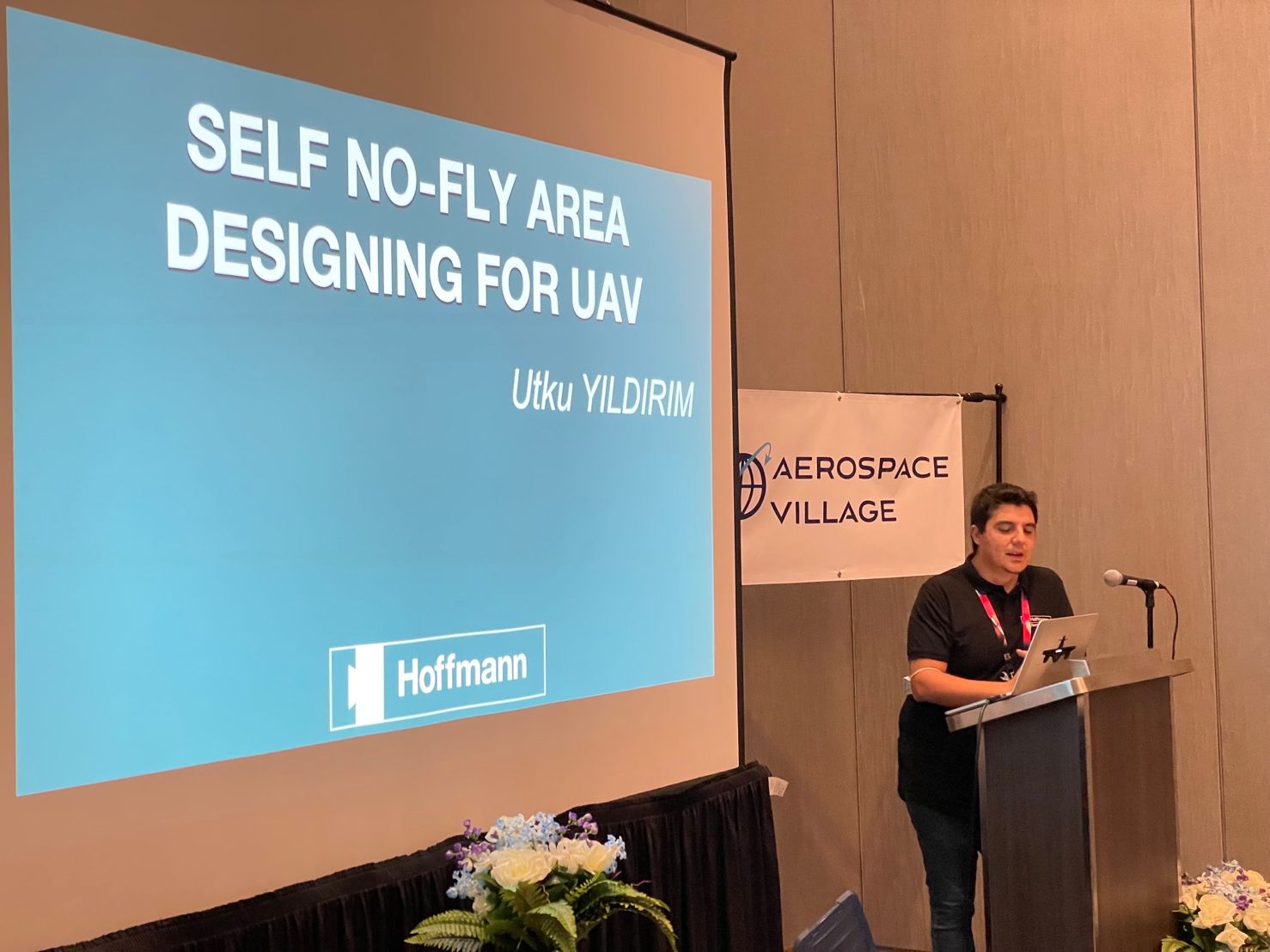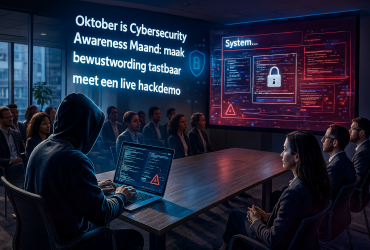DEF CON (or Def Con) is one of the biggest hacker conferences in the world and takes place in Las Vegas annually. After two years, it finally took place again physically last month from 11 to 14 August.
The event consists of lectures, workshops, meetings and competitions. The conference floor is set up with several ‘villages’, including Aerospace Village, Red Team Village and Car Hacking Village. Visitors and speakers from all over the world attend the event, with more than 5000 in attendance this time around.
Our ethical hacker Utku Yildirim was there and gave a presentation. He shares his experience:
‘I was allowed to give a presentation on Self No-Fly Area Designing for UAV. My method makes it possible to create a no-fly area by distributing signals that can display the coordinates of each selected area as GPS coordinates of the airport with multiple radio frequency devices. Several people approached me after my presentation; because of everything happening in the world, it’s an interesting and particularly relevant topic, the participants said. Afterwards, we shared ideas about the development of the method; it’s easy to set up, but it has to be designed as cleverly as possible. That’s the nice thing about DEF CON, being able to meet other cyber experts and spar with them.
For me, the most special DEF CON moment was meeting NASA’s head of cybersecurity. I shared experiences and ideas with him during the pilot, hacker and astronaut meetings.’

The fact that Hoffmann was able to give a presentation at this major conference was a great opportunity. With its ever-expanding team of ethical hackers/red teamers, Hoffmann is making significant inroads as a cybersecurity company. Hoffmann’s unique approach is appealing to more and more organisations and public institutions. Besides the pentests that Hoffmann’s hackers perform on the technology side, the human side is also taken into account by Hoffman’s team of behavioural scientists. Even if a given technological infrastructure is incredibly well-protected against external attacks, cyber criminals can still penetrate the network via an organisation’s employees using other methods, such as voice phishing attacks. By raising employees’ awareness of risks and making it possible for them to behave in a cyber-safe manner, you ensure that your organisation is truly cyber-safe.
Martijn van de Beek, director at Hoffmann: 'Hoffmann is unique in its combination of technical experts and experts in the field of social psychology. Many cybersecurity companies warn about the ‘weaknesses’ of humans. Hoffmann sees its behavioural approach as an opportunity to make humans a strong link.
Our motto (with a playful wink): ‘You wouldn’t let a psychologist configure a firewall, so why would you take a human approach with IT-ers?’
Would you like more information?
Would you like more information about Utku’s presentation or Hoffmann’s approach to cybersecurity? Please contact us and we will be happy to help.





